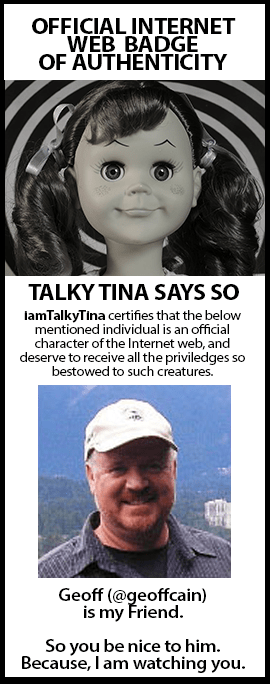For some great week-end reading in the edu world, I recommend George Siemens et al.’s “Preparing for the Digital University: a review of the history, and current state of distance, blended, and online learning” which I first read about in Downes blog where he gave his first take on the study. This was followed by this Twitter exchange. George Siemens countered with “On Research and Academic Diversity” and this was also met with a more in-depth critique by Stephen Downes in his followed-up with “Research and Evidence” where he discusses problems with the research in depth. The study and exchanges are important reading because I think they speak to this time as a critical moment in the history of online learning. The debates we are having today about open education and the role of the commercial sector and traditional education are going to shape what happens in education for the next twenty years. We should never be comfortable in the field of education. Our discussions and debates should be as rigorous as anything that you will find in Physics or Medicine.
I understand a lot of Downes frustrations with the state of education research. I get annoyed with the constant use of studies that have such small sample sizes. I use surveys and research in my work as a Director of Academic Technology and I would never make a decision, much less a generalization on a sample size of 30 subjects. The last survey of our students I conducted had a response rate of 1700 out of 9000 which nearly accounted for every student that had recently taken an online class. I work very closely with our Office of Institutional Research. Not that I really care, but the irony is that work like this would be ignored by traditional journals because I am sure we are considered “alt-ac” for not having the right credentials.
I am also concerned about the historical perspective and lack of non-traditional academics and practitioners missing from this study, but I think I understand a little of how that works. What happened and continues to happen around Connectivist MOOCs and open education in general in the last 10 years is revolutionary. We have an unprecedented opportunity to open education up to more people around the world than ever before and solve real world problems. But to do that through traditional education paths, one would have to participate in everything that stands in the way of change. Traditional educational
paths, including exclusive institutions like tenure and traditional edu publishing are not going to promote the changes needed. Downes says that some of the conclusions of the report are “empty and obvious” (such as the need for instructional design for student engagement) and that is because we have been discussing that for years in practitioner spaces and blogs – it is not real, of course, unless it is tied to a traditional study, not matter how strong or weak that study might be. And the academic/corporate “studies are not even asking question relevant to education – they tend to focus on “sustainability” and growth. In other words: money. There is a corporate narrative about what MOOCs are and how they got that way that is well rewarded by corporations and traditional education institutions.
Discussions like this are important for the academic community. The attitude of “why can’t we all just get along?” has no place in the academic community: validity of arguments come from questioning and the constant, rigorous challenge of debate. I have an enormous amount of respect for Siemens and Downes: their past collaborations have brought forth some of the most innovative thinking and practices in online education, and I expect nothing less from a critical debate between the two.
Related articles
- Common Online Education Myths (coloradotech.edu)
- The Future of Education is Online (Infographic) (forwardthinking.ashford.edu)
- MERLOT, OLC Merge Scholarly Journals (insidehighered.com)
- The end of MOOC? (lionoftheblogosphere.wordpress.com)






